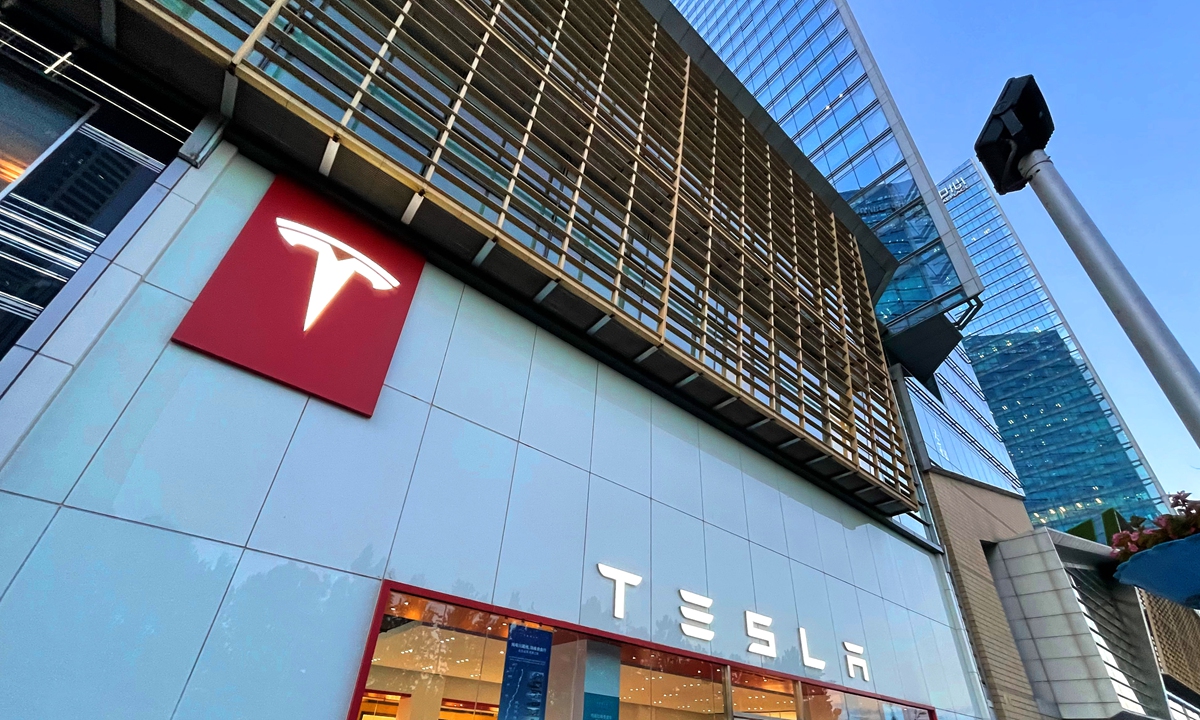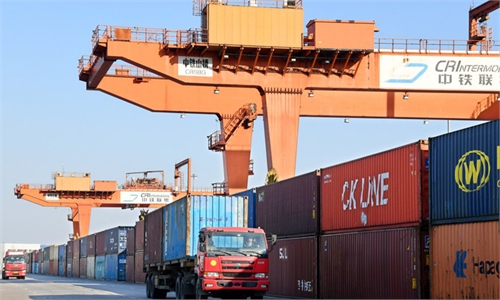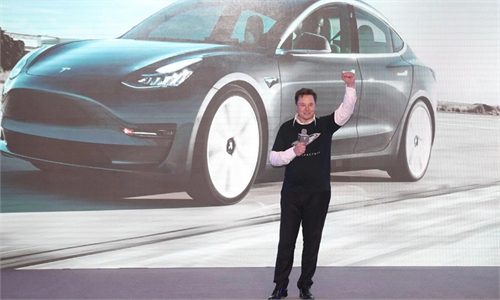COMMENTS / EXPERT ASSESSMENT
Biz Quick Take: Tesla and others will embrace faster growth as China removes restrictions

A view of a Tesla's sales and service center in Beijing in August. Photo: cnsphoto
China on Monday renewed its foreign investment negative lists, shortening the lists five years in a row. Among major changes, restrictions on foreign ownership in passenger car manufacturing are now removed.
Besides the foreign ownership limits, restrictions on the establishment of two or less joint ventures for the production of the same vehicles by the same foreign investor in China are removed as well, according to a statement published by the National Development and Reform Commission.
This new effort by China's central government to further open its market is great news for global players looking to invest in the world's largest market, such as US-based Tesla, Germany-based Volkswagen, Japan-based Toyota, as well as many Chinese domestic auto brands.
The Chinese market has become crucial for global auto makers, with many ramping up efforts to expand their footprints in this market in order to win an advantageous position in the future development of the industry, as many of them are eyeing on the emerging lucrative new energy vehicle (NEVs) manufacturing.
Tesla has demonstrated the huge potential of China's huge market. Its Gigafactory in Shanghai has not only boosted its success in China, but also promoted its growth on the global stage. The Shanghai factory produced a total of 129,000 vehicles in the third quarter, accounting for 54.2 percent of Tesla's total global production in the period.
Tesla has planned to invest up to 1.2 billion yuan ($188 million) to expand production capacity at its Shanghai factory, reports revealed in November.
And the US-based NEV giant is not alone in coming up with ambitious plans in China. Volkswagen is building its third electric vehicle plant in China, which is scheduled to be completed by mid 2022. BMW on December 16 announced to open three new or upgraded plants in China next year.
Supporting the global automakers is Chinese market's world-class manufacturing capacity, resilient industrial chains, skilled workers, sufficient engineers, competitive business environment, world-leading logistical system and an unrivalled giant market. More importantly, China is offering the valuable growth opportunity to both domestic and foreign players.
China's moves have drawn a stark contrast to the US government' efforts promoting an ill-advised anti-globalization strategy which has interrupted global supply chains, recklessly. However, running counter to basic economic rules, Washington's ill plan to isolate China out of the global industrial chains will prove to be ineffective and futile.
In the meantime, China's continued opening-up and reform efforts, and its welcoming offshore competition may be instructive for India which intends to enter the NEV arena.
Earlier in the year, Tesla was reportedly lobbying New Delhi to slash tariffs before it enters Indian market, which has been viewed as a nearly impossible mission in the near future by observers given India's long-standing protectionism. However, New Delhi, for its own good, should learn its lesson from the promising outlook of China's auto market and the rapid expansion of Chinese auto brands. Opening-up and better integrating to regional industrial chain is absolutely a better path for India.



